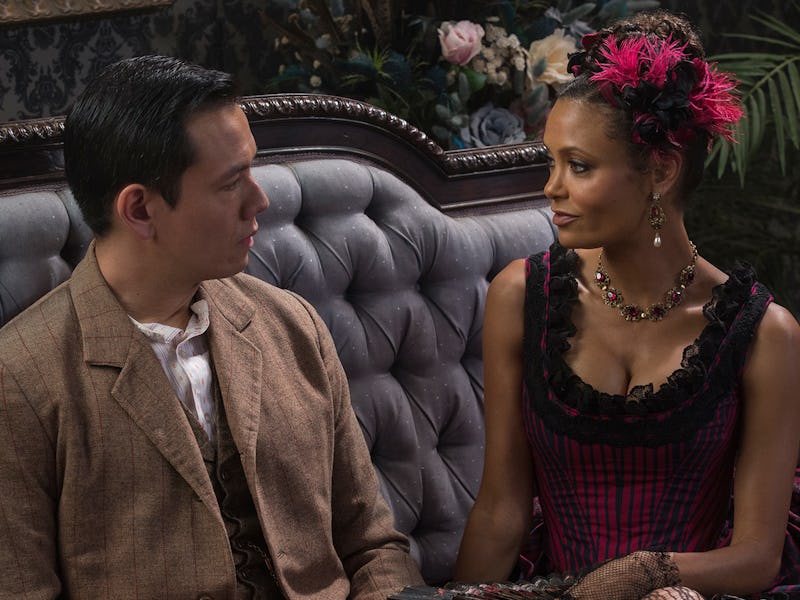'Westworld' on Society's Bullshit Views of Female Aggression
"Chestnut" just took a deep dive into Maeve and the culture's views on female aggression.

Westworld is proving to be far slyer than it looks. The series has already turned the Bland Female Protagonist archetype on its head, satirized our idea of Peak TV showrunners, and offered subversive sexual politics. The latter element took the forefront in the show’s second episode, “Chestnut,” which put Thandie Newton’s robotic lady of the night in the spotlight.
When Maeve begins malfunctioning thanks to the new “reveries,” the mechanics call her in for their typical naked interrogation testing. Just another day at the workplace. Their verdict to try to “fix” her? Up her “aggression.”
Maeve's naked interrogation in "Westworld"
This alone would be a fascinating commentary on society’s views of female aggression. After all, with the contradictory media commentary that has accompanied America’s first female presidential candidate, the culture’s views on female aggression has never been more in the spotlight than now.
According to pundits, Hillary Clinton, the first female major party presidential candidate, should smile more during debates, even when her male opponent is allowed to glower and interrupt her… She should be warmer, they say, until they decide that she should’t be too warm! Why won’t women ever smile the right amount?!
But Westworld spins this concept even further when it has a now-aggressive Maeve enthusiastically hit on a human male customer and alarm him with her forcefulness. Her usual speech about men being able to do “whatever the fuck you want” comes out not as a croon but as a snarl, and her flirty body contact now has her slam into him.
Now, a human man having misgivings about sex with a robot prostitute is obviously a unique scenario — though perhaps not as divorced from our own reality as you might think. Nonetheless, when the man recoils from Maeve, the message is clear: An overly aggressive woman is undesirable. She is defective and must be sent in for service.
When Maeve awakens in the middle of her “tune up,” she finds herself in a nightmarish scenario. Doctors stand above her with shiny instruments, and, when she tries to escape, she sees the lifeless bodies of her compatriots piled like objects. We are seeing a “person” at the most objectified they can possibly be, and yet, by making “Chestnut” focus closely on Maeve, the show invites us into her point of view. If we were just watching from the outside, it might be merely gesturing at this commentary without traveling the distance. But, the way it’s framed makes things clear: Society’s views of female aggression are bullshit. Maeve knows it, and the wickedly clever Westworld knows it too.